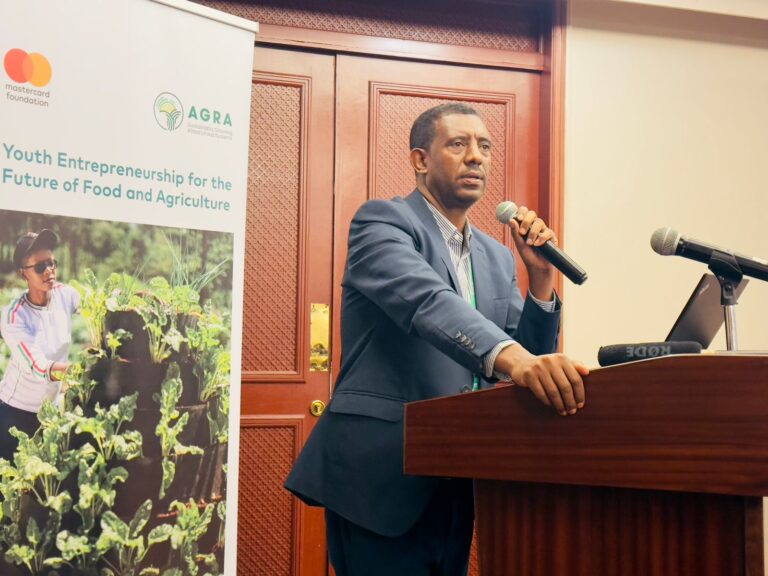The Alliance for a Green Revolution in Africa (AGRA) today hosted an insightful discussion with 100 Kenyan youth involved in agri-food systems. The conversation centered on the impact of climate change and explored potential solutions to mitigate its effects.
This marked the fourth in a series of meetings aimed at empowering young people by enhancing their understanding of the evolving needs and opportunities in agriculture amidst climate change. During the session, the participants shared innovative approaches they’ve adopted to reduce the country’s climate vulnerability, reflecting a growing awareness and proactive response among the youth.
The event was designed not just to educate but also to inspire. “Our goal is to build a sustainable future where the youth are not just survivors of climate change but also pioneers in creating a resilient and prosperous Kenya,” said Kindie Fantaye, AGRA’s Head of Climate, Adaptation, Sustainable Agriculture, and Resilience.
The urgency of such initiatives is underscored by the findings of a 2022 report on the state of climate in Africa, which highlighted that the continent is warming faster than the global average. This alarming trend is disrupting fragile agricultural systems across Africa, signaling a need for coordinated action.
Experts have long warned that Africa’s food systems face unprecedented challenges due to increasing droughts, heatwaves, storms, and other extreme weather events. The youth, in particular, are highly vulnerable, as these climate shocks threaten their livelihoods, education, and future prospects.
Recognizing these challenges, the meeting emphasized the importance of equipping young people with the knowledge and tools needed to adapt to these changes. Collaboration with institutions and organizations is crucial in this endeavor.
Elizabeth Ngeny, Advisor on Gender and Affirmative Action at the President’s Economic Transformation Office, acknowledged the critical role of various stakeholders in this fight. “We are deeply grateful to the civic organizations, NGOs, and development partners like the Mastercard Foundation and AGRA. Their contributions to climate change interventions and adaptation strategies are invaluable.”
Ngeny also highlighted the pivotal work of local institutions such as the Kenya Meteorological Department and the University of Nairobi’s Institute for Climate Change Research. These organizations have been at the forefront of climate research, providing essential data and insights that inform policy and practice in climate resilience.
As the conversation around climate change continues to grow, the involvement of young people and the support of strategic partners remain vital in transforming Africa’s food systems and ensuring a sustainable future for all.
AGRA Engages Kenyan Youth on Agriculture and Climate Change Solutions.










